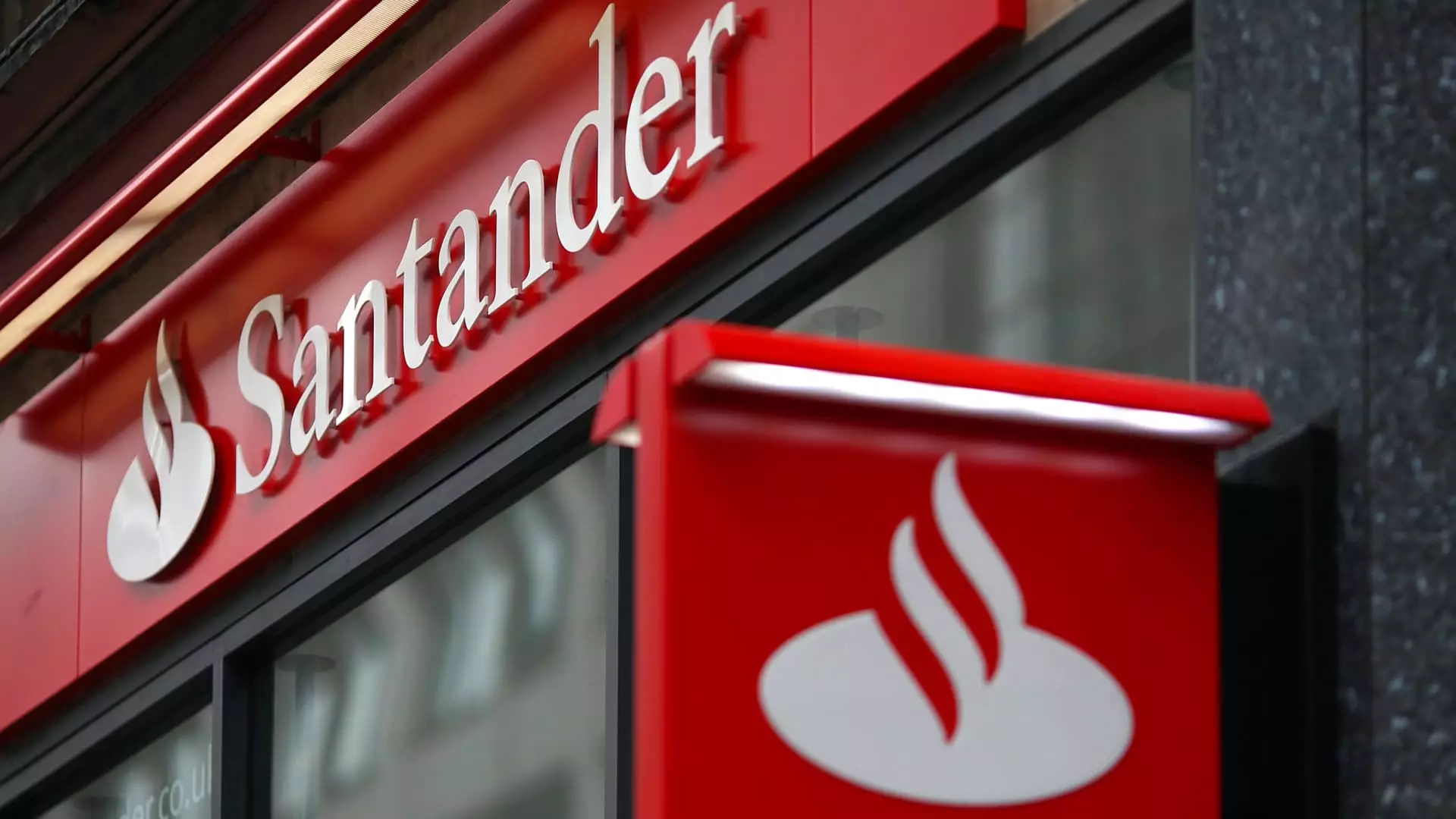In an era where global banking giants are continually recalibrating their footprints, Santander’s recent acquisition of TSB signals a complex narrative of ambition, strategy, and underlying insecurity. While the bank cloaks this move in language of growth and strategic importance, a critical analysis suggests it may be more about salvaging a faltering empire than about visionary expansion. The decision to purchase TSB for over £2.6 billion, despite years of questionable profitability and internal turmoil, exposes the fragile state of Santander’s British operations and raises pressing questions about its long-term viability.
The narrative spun by Santander’s executives emphasizes the deal’s promising return on investment and strategic fit. They portray it as a masterstroke — a move to stabilize returns, deepen market penetration, and reinforce the bank’s commitment to the UK market. Yet, beneath these surface-level justifications lies a deeper reality: Santander’s struggles in Britain are palpable. Pre-tax profits have plummeted, and recent layoffs and branch closures offer a stark reminder that the bank’s presence in the UK is not as resilient or profitable as it claims. Is this acquisition about seizing new growth opportunities, or is it a desperate attempt to prop up an empire that has long lost its former strength?
Furthermore, the timing of this purchase hints at strategic opportunism more than genuine confidence. With Sabadell’s apparent need to sell, possibly to fend off a hostile takeover by BBVA, Santander appears to be capitalizing on a distressed asset. Is this a show of strength or a signal of desperation? The truth may be more nuanced: Santander might view the UK as a relatively safe harbor compared to the turbulence of the Spanish banking sector, but that safety is increasingly questionable given the waning profitability and internal conflicts revealed behind the scenes.
The Political and Economic Quagmire in Spain and Beyond
The intertwined politics between Madrid, Catalonia, and the European Union cast a long shadow over these banking maneuvers. The Spanish government’s opposition to the BBVA-Sabadell merger, driven largely by regional political considerations and fears of job losses in Catalonia, underscores how fragile the stability of Spain’s banking sector remains. State interference and regulatory hurdles threaten to derail what could be a transformative consolidation, inserting an element of unpredictability that no bank can afford to ignore.
Santander’s move can also be interpreted as a calculated positioning against this turbulent backdrop, signaling a preference to operate within familiar markets rather than venture into more volatile, uncertain territories. Yet, given the European Commission’s cautious stance and antitrust concerns, this deal appears to be more about tactical preservation than strategic dominance. The possibility that BBVA may still pursue its hostile bid indicates that the battlefield remains highly contested, and Santander’s buy may serve as a defensive measure more than a planning of future expansion.
In the grander scope, such maneuvers reveal a banking landscape where regional political disputes and national interests heavily influence corporate strategies. For Santander, the UK, with its low-risk, high-quality assets—even amid its recent struggles—becomes a safer haven, albeit one increasingly marred by internal challenges and Brexit-related uncertainties. The broader message: in a fragmented European financial market, stability is elusive, and banks are forced to take opportunistic gambles to safeguard their future.
Implications for Competition and Market Dynamics
The acquisition fundamentally shifts Spain’s banking landscape, intensifying a painful reality: the sector’s fierce competition and declining profitability. With domestic房地产市場形勢疲软、按揭利率下降,银行利润空间缩窄,市场竞争日益激烈。这一局势无疑将加剧银行之间的生存压力,给金融环境带来更多不确定性。在这样的背景下,Santander的战略意图令人深思。
By acquiring TSB – a bank with a troubled past but valuable retail assets – Santander might be attempting to suppress BBVA’s offensive. Analysts suggest this move could serve as a tactical distraction, aiming to block or distract from BBVA’s hostile takeover ambitions. But this approach risks exacerbating the already brutal competition within Spain, making it less likely that any bank will enjoy stable profitability soon. The industry’s focus on acquisitions and defensive strategies underscores how diminished the organic growth prospects are amid economic headwinds and regulatory challenges.
Moreover, the repercussions extend beyond Spain and the UK. As European banks scramble for scale and stability, the consolidation trend threatens to create monopolistic tendencies, eventually stifling innovation and customer choice. If large institutions consolidate under financial duress, the outcome may be a less resilient, less competitive sector that favors short-term survival over long-term health.
A Center-Left Perspective: A Call for Responsible Banking
From a centrist liberal standpoint, this saga underscores both the resilience and the inherent fragility of our financial systems. While consolidation can bring stability and efficiency, the current wave of aggressive acquisitions reveals a deeper need for responsible banking practices rooted in transparency, social responsibility, and sustainable growth.
Banks should prioritize long-term stability over opportunistic tactics that might boost short-term shareholder returns but destabilize the broader economy. The political debates surrounding BBVA and Sabadell highlight the importance of safeguarding regional jobs and avoiding reckless mergers driven solely by financial engineering. Public trust is at stake, and without a conscious effort to balance profitability with social responsibility, the banking sector risks becoming a catalyst for economic inequality and regional tensions.
Furthermore, the mandatory scrutiny and regulation should extend beyond profit metrics to evaluate the social impact of these mergers. Are they merely consolidations aimed at market dominance, or do they genuinely bolster local economies? A responsible banking model should be rooted in accountability, community engagement, and a commitment to economic sustainability—principles that seem to be sidelined in the current strategic gambles of global giants.
By fostering a more transparent, community-focused approach, the banking sector can restore public confidence and help create an economy where growth benefits broader society rather than just a select few. It’s time for the industry to recognize that true strength lies not just in financial metrics but in its ability to contribute to societal well-being—a lesson that the recent moves by Santander and other big banks should not overlook.

